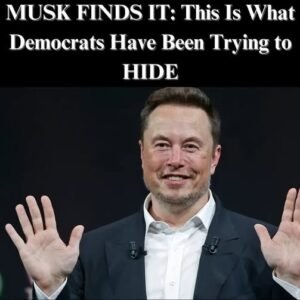Elon Musk Sparks Controversy Over Social Security Fraud and Government Data Leaks
Elon Musk’s latest posts on X have ignited national debate, with the billionaire entrepreneur making two explosive claims—one about widespread Social Security fraud and another concerning leaked government intelligence.
In a viral post, Musk alleged that millions of centenarians in the Social Security database may be fictitious, suggesting fraudulent payouts on a massive scale. Simultaneously, reports surfaced that the Trump administration’s Department of Government Efficiency (DOGE), linked to Musk, may have mishandled classified information regarding the National Reconnaissance Office (NRO).
Social Security ‘Vampires’? Musk Questions the Data
Musk shared a striking chart supposedly drawn from the Social Security database, claiming that over 20 million people were recorded as being over 100 years old—far exceeding census figures.
His post, laced with humor, joked that the figures suggested a secret society of vampires living off Social Security. While some dismissed the claim as exaggeration, Musk argued that such discrepancies pointed to large-scale fraud or systemic data errors costing taxpayers billions.
Experts caution that while government databases may contain outdated or erroneous records, direct fraud on this scale remains unproven. Nonetheless, Musk’s claims have fueled calls for audits and reforms in Social Security’s record-keeping to prevent wasteful spending.
DOGE Leak: A Security Breach or a False Alarm?
In a separate controversy, reports alleged that DOGE—a government reform initiative linked to Musk—had accidentally released classified NRO data. Critics claim that sensitive information about intelligence budgets and staffing was improperly made public, raising concerns over national security breaches.
However, investigative journalist Jerry Dunleavy challenged the accusations, noting that the data in question was already publicly available through the Office of Personnel Management (OPM). The White House dismissed the controversy as “another hoax,” accusing media outlets of amplifying baseless fears.
The Bigger Picture: Transparency vs. Sensationalism
Musk’s dual revelations have reignited discussions on government transparency, data security, and the role of private-sector innovators in public policy. While his critics argue that he thrives on hyperbole, his supporters see his scrutiny as a necessary push for reform.
Calls for greater oversight, cybersecurity improvements, and audits of federal programs are growing louder. Whether Musk’s claims expose real vulnerabilities or serve as another high-profile distraction, one thing is certain—his ability to shape public debate remains unmatched.
As investigations unfold, the challenge will be separating fact from sensationalism while ensuring government efficiency, accountability, and security in an increasingly digital world.
